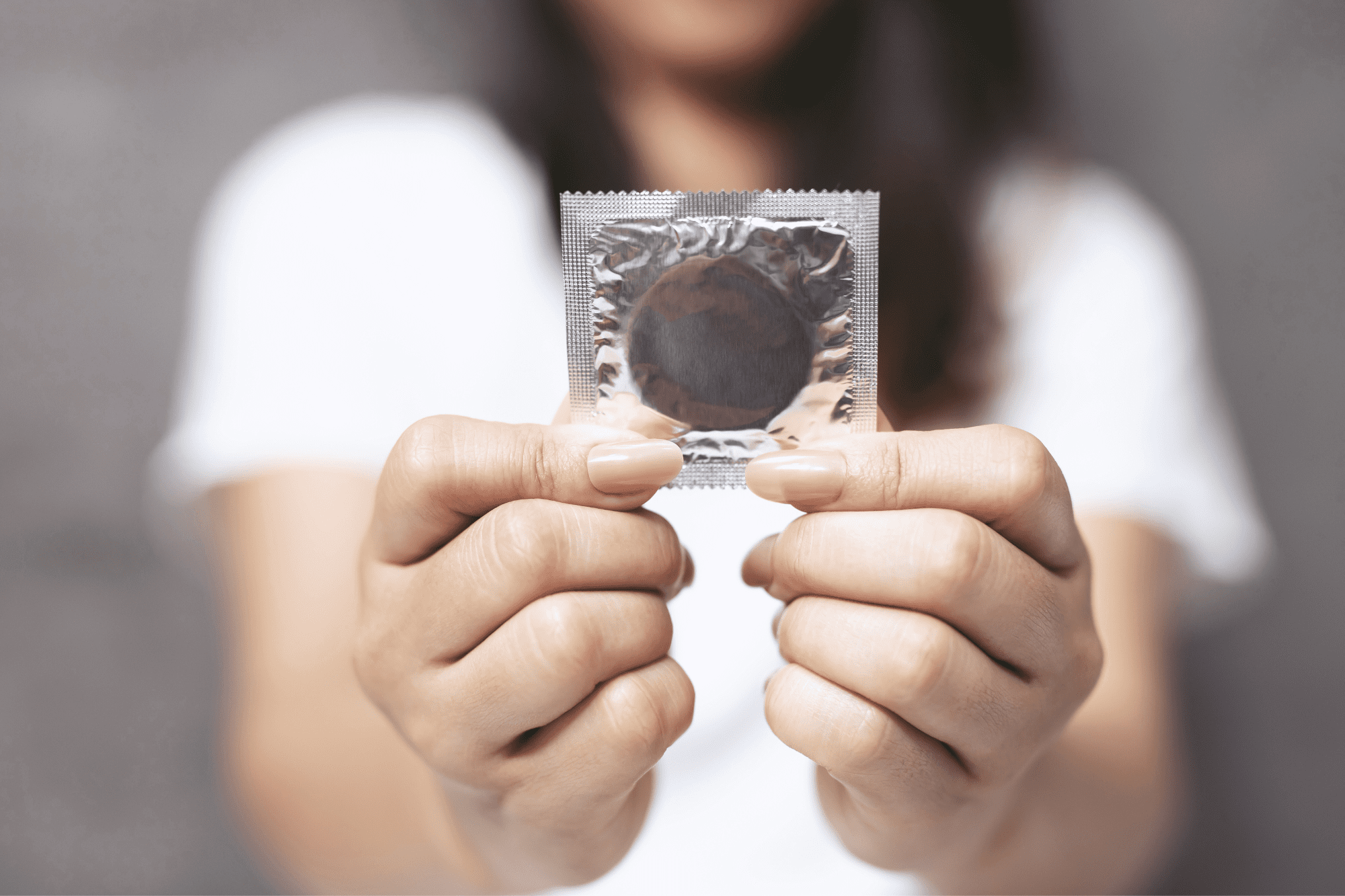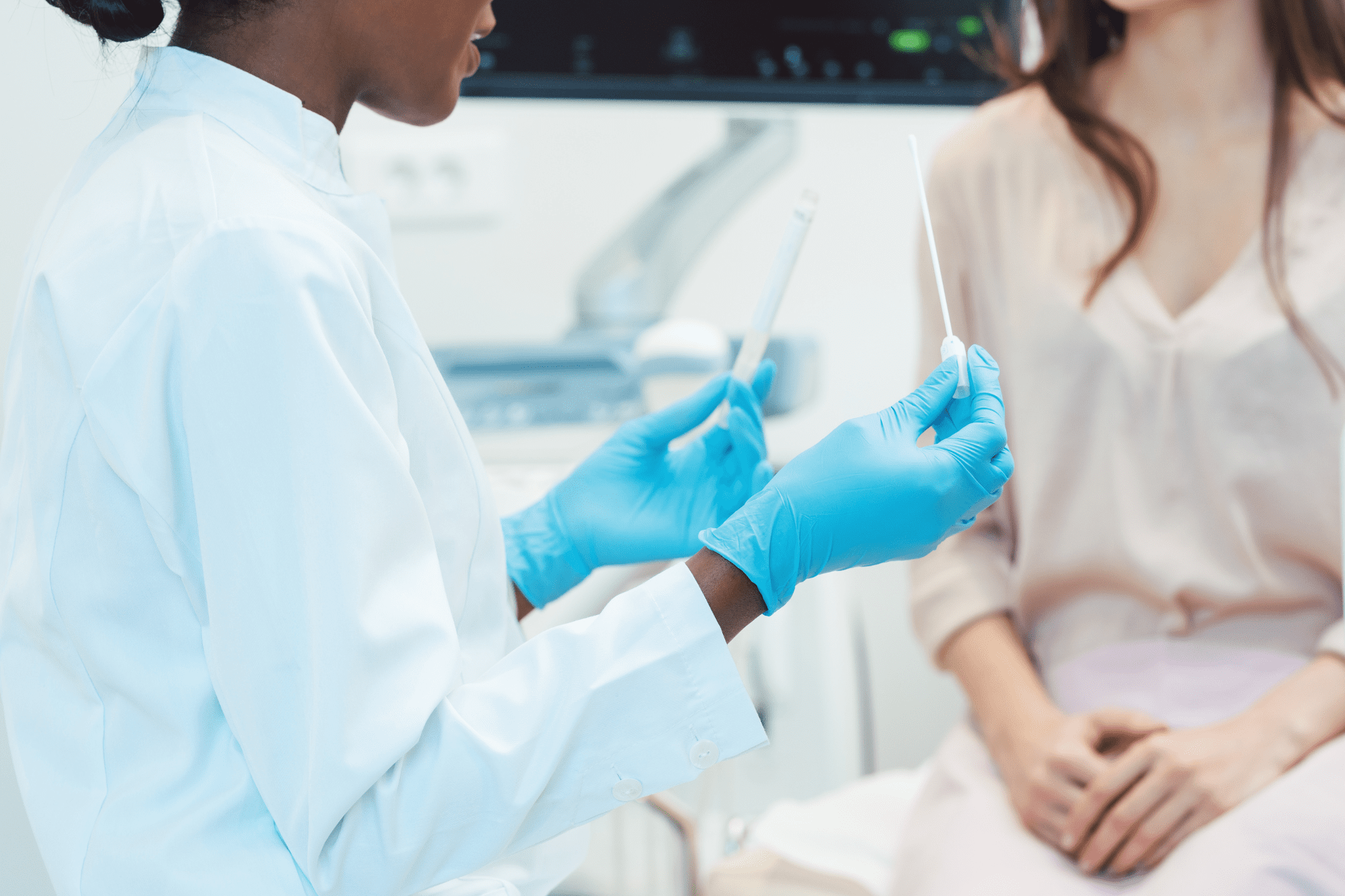Finding the best ways to avoid STDs is important for your sexual health.
Sexually transmitted diseases (STDs), also called sexually transmitted infections (STIs), may be caused by viruses, bacteria, or parasites. Generally, the only way to get these illnesses is through sexual contact.
The Mayo Clinic says: “A sexually transmitted infection may pass from person to person in blood, semen, or vaginal and other bodily fluids.”
That means any kind of sex can put you at risk.
To help you protect your sexual health, we’ve included four of the best ways to prevent STDs in this blog. These tips are listed from the most to least effective ways to protect yourself from illness.
How can I avoid STDs and STIs?
1. Practice abstinence
According to the CDC, abstinence is the most reliable way to avoid STDs.
It’s also the best way to prevent unexpected pregnancies.
Abstinence means not having sex until you’re in a committed, long-term relationship, usually marriage. That includes all vaginal, oral, and anal sexual activities. It’s not limited to penetration.
When you don’t have sexual contact with another person, you can’t get a sexually transmitted infection. It’s just that simple!
Though abstinence isn’t always easy, it is the best way to protect your sexual health. STDs can cause several symptoms. Some, such as rashes, discharge, and warts, are uncomfortable but may not be very serious.

Other signs, including fevers, pain, infertility, and future pregnancy complications, can have a more severe impact on your life and health.
For full protection against STIs and unintended pregnancy, practice abstinence.
2. Only have sex with a committed, monogamous partner
If you do choose to have sex, the next most effective protection is monogamy. This means only having sex with one person who is also only having sex with you.
If both you and your partner are free of sexually transmitted diseases, monogamy ensures that you can’t get an infection through sex.
For the best protection, this sexual relationship should only happen with a long-term partner. By limiting the total number of people you have sexual contact with, you also reduce your risk of getting an STD.
Having multiple sexual partners throughout your life, even if the relationships are monogamous, exposes you to a higher risk of catching an STI.
Most importantly, any sexual relationship has to be mutually monogamous. If your partner has sex with other people, he has a higher chance of getting an STD. The next time you have sex, he may infect you. This endangers your sexual health, even if he is the only partner you’re having sex with.
3. Use condoms

Condoms can reduce your STD risk, but they won’t fully protect you if you have sex with an infected person.
Most people fail to use condoms correctly, which limits the protection they offer. Plus, condoms don’t cover all the skin that may carry a sexual infection. If, for example, your partner has an infection in the skin of his testicles or a parasite in his pubic hair, a condom won’t protect you from the STD.
Condoms that are old, too big, or broken can also expose you to illness.
A condom may be better than nothing, but you shouldn’t rely on “safe sex” to prevent STDs. Always consider the risks when choosing to have sex, especially if it’s with a casual or non-monogamous partner.
4. Talk openly about STDs with your sexual partners
Finally, talking openly about STIs may help you avoid infections.
Before having sex, ask every partner about their STD status and sexual health. Make sure you and your partner have both been tested recently for diseases and have negative results.
This is your health that may be at risk, so don’t be afraid to ask to see the results of the tests.
You can also ask about common symptoms. Up to 80% of people who have an STD have no symptoms, so they may not know that they have one. If they have burning while peeing, strange bumps, discharge, or other concerning signs, don’t engage in sex with them.
Above all, be aware that people may lie about their symptoms, sexual health, and sexual partners. You risk getting an STI every time you have sex. Make sure you’re aware of the potential short- and long-term effects of these diseases before taking that risk.
Test and treat STDs at Thrive Orlando
Sexually transmitted diseases can cause serious complications during birth and after abortions. If you are pregnant, it’s important to get STI testing before you make a decision about your next steps.
It may be embarrassing to learn you have an infection, but you should never be ashamed of your STI. You just need to get care for it.
At Thrive Orlando, we offer free STD tests and treatments to women who qualify.
Make an appointment today to learn more about our free pregnancy services.


